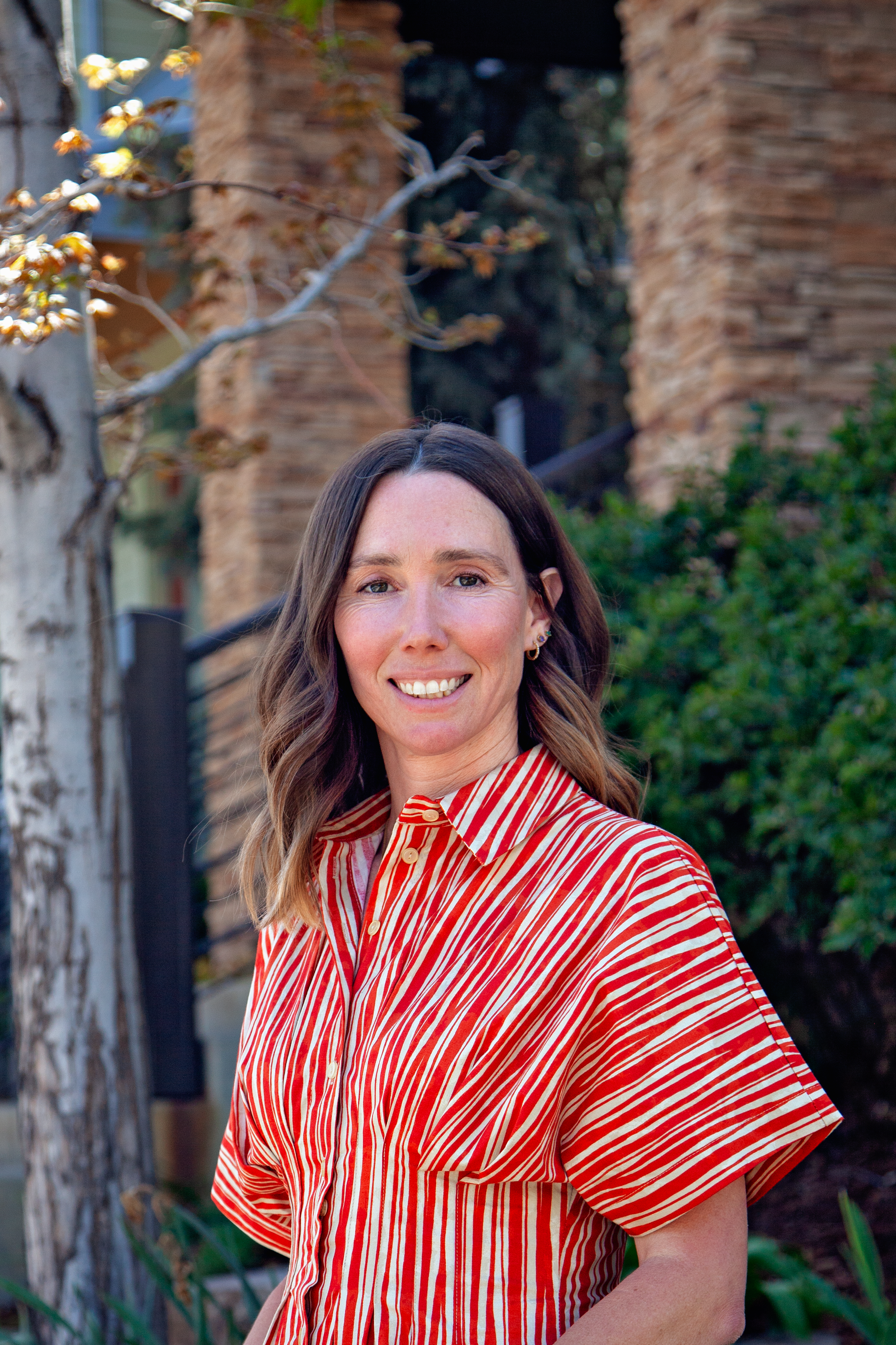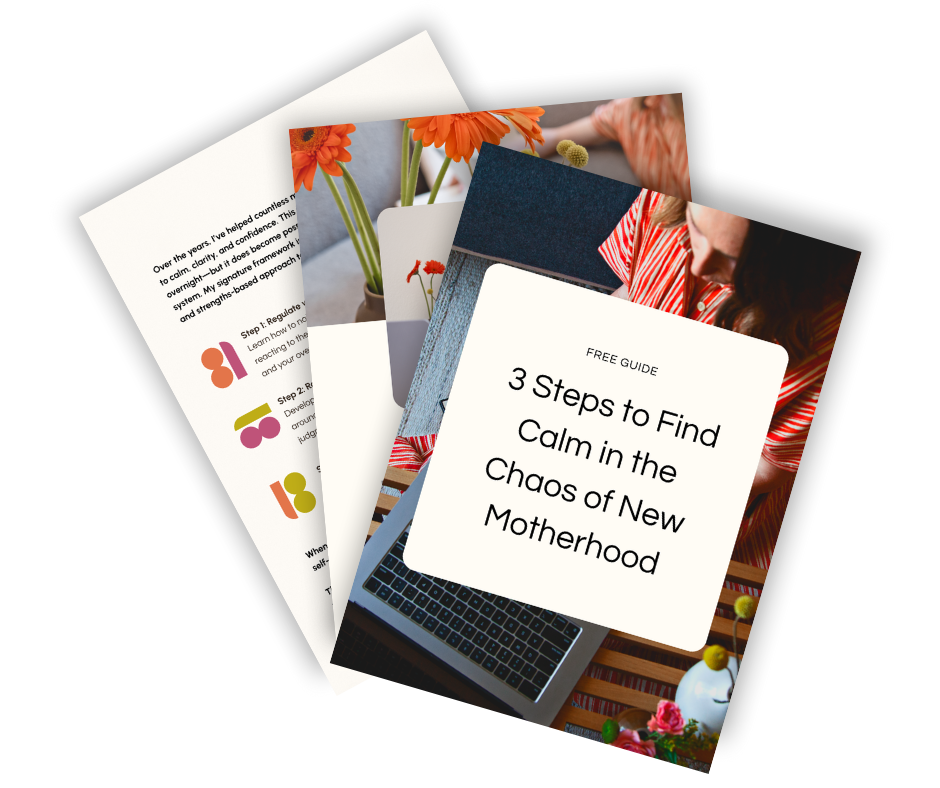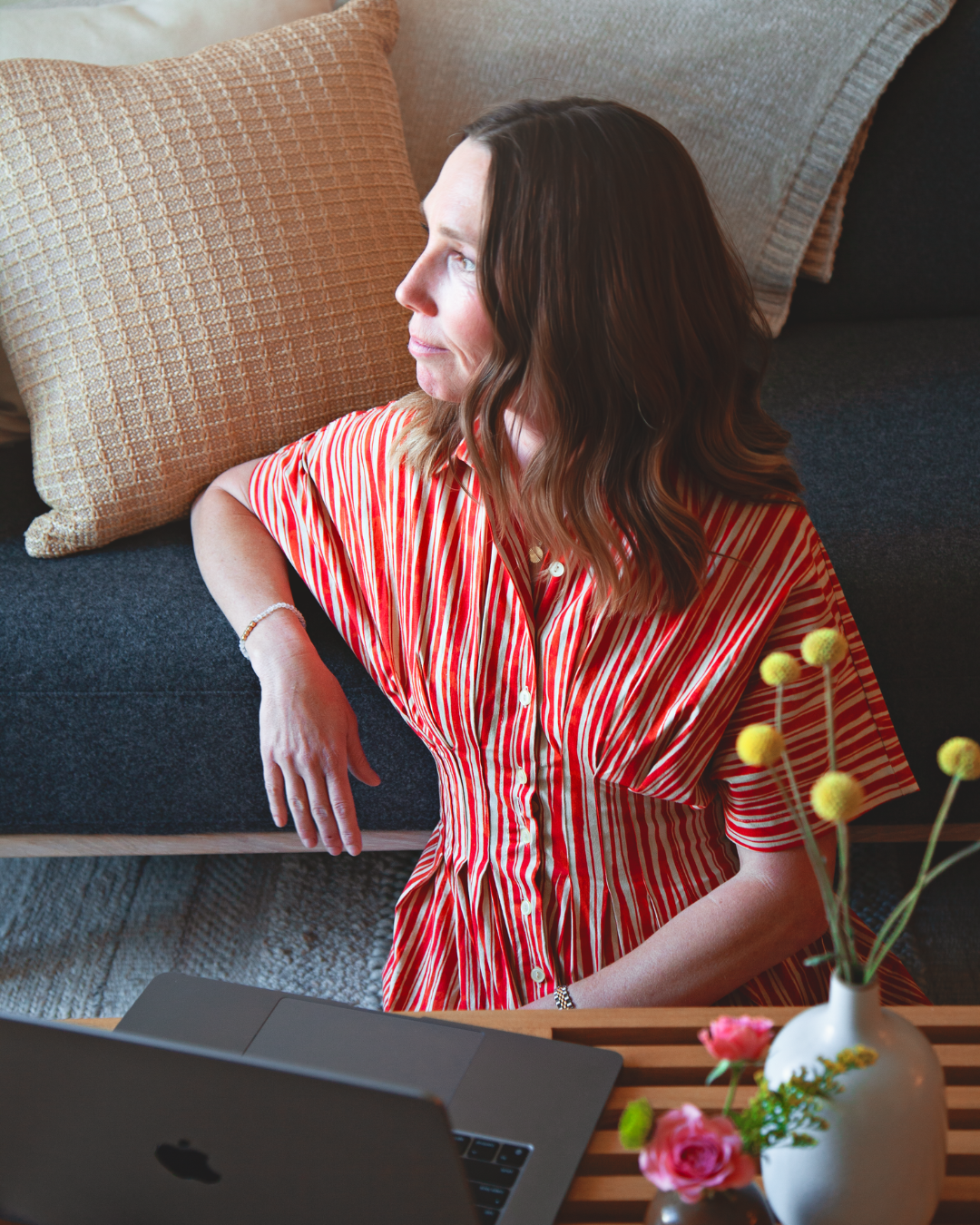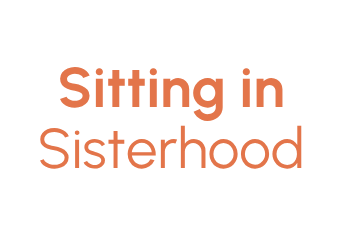Postpartum Anxiety Therapy in Denver, CO | Sitting in Sisterhood
Postpartum anxiety can feel like a constant hum of worry, a racing mind that never shuts off, or a sense that something bad is always about to happen—even when everything looks “fine” on the outside. If that sounds familiar, you’re not alone.
In case you’re new here, I’m Stephanie from Sitting in Sisterhood, a trauma-informed space for women navigating emotional transitions.
I offer postpartum therapy in Denver to help you calm your nervous system, process what’s beneath the anxiety, and feel like yourself again. Let’s explore how this support can help you move from survival to steady ground.
What is postpartum anxiety therapy?
Postpartum anxiety therapy supports women who feel overwhelmed, panicked, or hypervigilant after giving birth. While postpartum depression often gets more attention, postpartum anxiety is just as common—and just as real.
It might show up as racing thoughts, irrational fears, or the inability to rest, even when the baby is sleeping. Therapy offers you space to unpack those emotions without judgment.I don’t treat you like a diagnosis— I meet you as a whole woman who’s carrying a lot. I’ll support you in calming your nervous system, releasing internalized pressure, and restoring balance.
Most common symptoms of postpartum anxiety:
- Constant worry or fear, often about the baby’s health or safety
- Racing thoughts or a sense of dread
- Physical symptoms like a tight chest, nausea, or shakiness
- Difficulty sleeping, even when exhausted
- Irritability or feeling “on edge” most of the time
- Avoiding people, places, or situations out of fear
- Intrusive thoughts that feel scary or shameful
You are not a bad mother for feeling this way. You are a human navigating a massive life shift—and you deserve support.
How do I know if I need postpartum anxiety therapy?
- Do I feel consumed by fear or what-ifs, even when things seem fine?
- Do I avoid leaving the house or letting others help with the baby?
- Am I constantly scanning for danger or catastrophizing?
- Do I feel disconnected from myself or unable to relax at all?
- Have others told me to “just enjoy this time” but I feel frozen or panicked?
If any of these resonate, postpartum anxiety therapy might be the grounding space you’ve been needing.
How I treat postpartum anxiety in Denver
At Sitting in Sisterhood, my therapy approach is not about “fixing” you. It’s about gently helping your body and nervous system shift out of survival mode—so you can access calm again.
I use:
- Somatic tools for grounding and emotion regulation
- Nervous system education to help you understand what’s happening inside
- Space to process intrusive thoughts without shame
- Reconnection with your body, identity, and intuition
- Support to explore the expectations and pressures you’re carrying
This is a space where you can exhale. You don’t need to be “strong” or “grateful.” You just get to be real.
What topics can we talk about in therapy for postpartum anxiety?
- Coping with panic, fear, or chronic overstimulation
- Processing birth experiences and expectations vs. reality
- Navigating identity shifts and “mom guilt”
- Exploring boundaries, support systems, and needs
- Releasing shame around intrusive or scary thoughts
- Grounding practices for daily regulation
Ready to get started?
Getting to know you
A compassionate, nonjudgmental assessment to understand your unique struggles and emotional needs as a new mom.
Creating a growth plan
A customized therapy plan that integrates emotional support, practical coping skills, and self-care strategies tailored to your life.
Ongoing support and care
Ongoing sessions to build resilience, set boundaries, and create lasting, practical solutions that help you feel more balanced and connected not only as a mother but as yourself.
Postpartum anxiety therapy specialist in Denver
I’m Stephanie Poole, founder of Sitting in Sisterhood—a trauma-informed, soul-centered space for women moving through motherhood and identity shifts. Through postpartum anxiety therapy in Denver, I help you come back to your body, your voice, and your truth. Whether your baby is 3 weeks or 3 years old, it’s never too late to find calm again.
Tips & resources for coping with postpartum anxiety:
- Try a 5-4-3-2-1 grounding practice when overwhelmed
- Eat and hydrate regularly, even if your appetite is low
- Use simple mantras like “I am safe in this moment”
- Ask for help even if it feels uncomfortable—you don’t have to prove anything
- Talk to a therapist trained in perinatal mental health (hi 👋)

Hi, I'm Stephanie Poole
Licensed clinical social worker and board certified health and wellness coach.
I help ambitious mothers in postpartum rebuild their strength, reconnect with their voice, and rise — not just as moms, but as whole, resilient women. Through holistic, soul-centered support, I guide them from survival to aligned, embodied living.

Getting to know you
A compassionate, nonjudgmental assessment to understand your unique struggles and emotional needs as a new mom.
Creating a growth plan
A customized therapy plan that integrates emotional support, practical coping skills, and self-care strategies tailored to your life.
Ongoing support and care
Ongoing sessions to build resilience, set boundaries, and create lasting, practical solutions that help you feel more balanced and connected not only as a mother but as
yourself.
Book your first session
Investment: $175 per 60-minute individual session
Includes:
- One 60-minute virtual therapy session tailored to your current needs
- Follow-up email with curated resources or reflections to support your progress
- Text check-ins for brief support between sessions


FAQ
How do I get rid of labor anxiety?
Labor anxiety often stems from fear of the unknown, medical trauma, or past experiences. A therapist can help you process those fears, learn grounding techniques, and regain trust in your body. The goal isn’t to eliminate all fear—it’s to help you feel more resourced and empowered heading into birth.
How long does postpartum panic last?
For some women, symptoms ease within weeks. For others, they linger or worsen without support. Panic isn’t something you can “logic” away—it lives in the nervous system. Therapy helps regulate the body’s stress response so you can feel more present and less reactive over time.
What is postpartum anxiety at 12 months?
Postpartum anxiety doesn’t have an expiration date. Many women still experience high anxiety a year or more after birth—especially if they didn’t receive early support. Therapy validates your experience no matter how much time has passed and offers space to begin healing at your pace.
How to help a wife with postpartum anxiety?
The best support is presence without pressure. Validate her feelings, encourage rest, help with practical needs, and gently suggest professional support if she's open. Avoid minimizing her symptoms—it’s not “just hormones.” Therapy can help both of you feel more supported in this transition.
What is the strongest natural anti-anxiety remedy?
There’s no one-size-fits-all remedy, but nervous system practices like breathwork, grounding, and somatic regulation can be powerful. Some also find support from magnesium, herbal teas, and acupuncture. Therapy complements these practices by addressing the root emotional causes, not just the symptoms.
